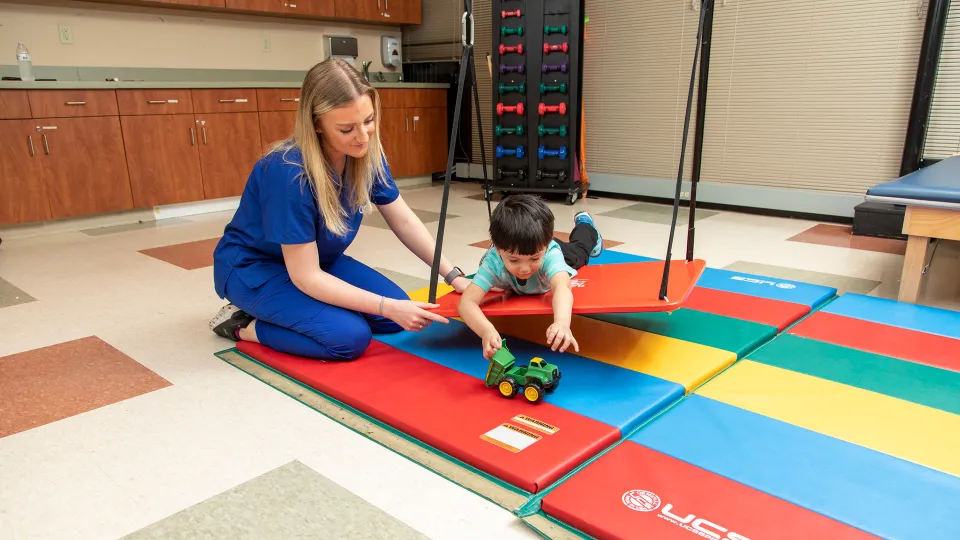
If you're interested in obtaining a health care degree that will allow you to work closely with patients, consider becoming an occupational therapist assistant (OTA) or physical therapist assistant (PTA).
These family-friendly occupations often provide considerable flexibility in terms of workplace and hours. The educational period is relatively short compared to many health care careers. At Concorde Career College, we open the door to both of these career possibilities for you.
Occupational Therapist Assistant vs. Physical Therapist Assistant
Occupational therapy and physical therapy are similar in some ways and different in others. The goal of physical therapy is to help people recover from injuries, regain movement or relieve pain.
Occupational therapy focuses on skills needed for daily living. They might be anything from basic daily hygiene to sophisticated computer-enhanced writing.
OTAs and PTAs work under the supervision of an occupational therapist or physical therapist to provide direct, hands-on exercises or help patients practice basic skills.
Education, Licensing and Certification
An associate's degree is the minimum education required to become either an OTA or a PTA. Most states require that OTAs be licensed, while all states require PTAs to be licensed or certified. After you graduate, you must pass a test to become licensed or certified.
Typical educational courses for OTAs and PTAs include anatomy and psychology as well as general education course like algebra and English. There is often a stronger focus on pediatric health in an OTA program, as occupational therapists spend considerable time working with disabled children.
OTAs typically must also spend a minimum of 16 weeks in supervised hands-on clinical practice, according to the US Bureau of Labor Statistics (BLS).
Work Settings and Hours

Where Do Occupational Therapy Assistants Work?
Work settings for OTAs and PTAs vary to some extent, although the majority of both groups work in private offices with a supervising occupational or physical therapist. These jobs typically offer traditional office hours, and weekend or evening work is limited.
PTAs are more likely to work in hospitals, where shift and weekend work is more likely. Either might work in home care, while OTAs are more likely to work in schools. Part-time work may be available in many settings for either occupation.
Health Care Job Demand
The huge baby-boom population is expected to create increasing demand for physical therapy and occupational therapy services. Job growth is projected to be much higher than average for both occupations, according to the BLS.
The current average job growth for all occupations is around 7 percent through 2024. However, job growth for OTAs is projected at 43 percent for the same period, while job growth for PTAs is projected to be 41 percent.
At Concorde Career College, we offer associate's degrees for both OTAs and PTAs. With our accelerated learning programs, you could graduate in as few as 20 months.
We have scholarship and financial aid programs available at campuses in nine states, as well as an online program. Contact us today to start the path to your new career.
Interested In How To Become an Occupational Therapy Assistant?
Click here to explore Occupational Therapy Assistant Programs near you!
Interested In How To Become a Physical Therapist Assistant?
Click here to explore Physical Therapist Assistant Programs near you!
Take The Next Step Towards a Brighter Future
Interested in learning more about our Occupational Therapy Assistant program?
We have a Concorde representative ready to talk about what matters most to you. Get answers about start dates, curriculum, financial aid, scholarships and more!







